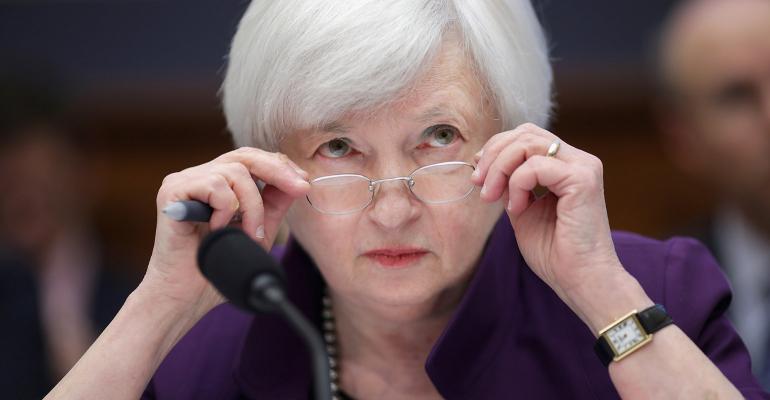Even with the impending potential change in her career, we will likely be listening to Janet Yellen even if she’s out of the Fed—brains, insight and experience do count for something— but her relevance will, like other ex-Fed officials, tend to diminish with time.
For now, she’s got at least one hike to go in the Federal Open Market Committee meetings she has left to chair. Her term expires Jan. 31, 2018, which is also the last day of a two-day FOMC meeting. I presume she’ll let her successor take the reins if not reappointed and, having a hike in December, both will find little to do. (That alone may be another reason to hike in December come to think of it.)
The current odds of a December hike are about 75 percent, and with her recent dismissal of low inflation as due to various transient factors, the answer to the titular question is—don’t stop listening yet.
In any event, low inflation, heretofore, has not changed the Fed’s bias, indeed they seem a bit more adamant, which extracts the main inhibition to keeping a hike priced in. After that, all bets are off.
The tax code and changes to it are first and foremost. The current mindset of the Fed would, I think, favor a somewhat more aggressive policy, since they are already worried about the level of unemployment, expecting higher inflation and talking about asset prices being worryingly high. The newer Fed members, in theory, will be closer to Trump’s mindset (oh jeez), at least in terms of economics, so perhaps they will be more patient with seeing how tax and other policies play out.
Are they then more bullish for the bond market?
The Fed has two monetary policies at work: the Funds rate and related instruments at the front end and the balance sheet further out. The traditional camp is likely to go slow initially in playing with the balance sheet, meaning sticking to the current trajectory, barring a recession. No one knows how that will unfold and to the extent building it boosted stocks and risk assets, how much unwinding it may hurt—especially if 2 percent (plus or minus) GDP is here to stay. And there will soon be more issuance for everyone to buy, all things being equal, underwritten by a Treasury-dealing community that, frankly, ain’t what it used to be.
Traditionally, a hiking cycle flattens the curve. A slow hiking policy against balance sheet reduction, perhaps accelerated if Trump chooses a Warsh or other Fed “outsider,” may inhibit that tradition. I’m not sure how easing up on bank regulations might impact the curve, but to the extent banks like a steeper curve and incoming Fed officials favor deregulation, then I’d say fewer hikes and more push for the balance sheet reduction, thus creating the risk of a hiking cycle having less of a flattening curve inclination.
For the umpteenth time, I will say that increased Treasury coupon issuance may encourage that as well.
David Ader is Chief Macro Strategist for Informa Financial Intelligence.





